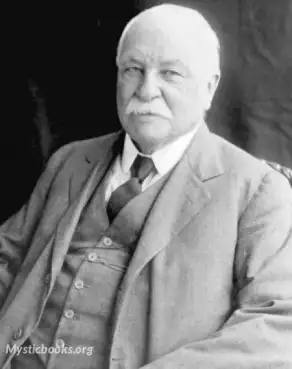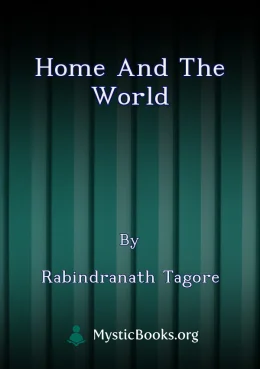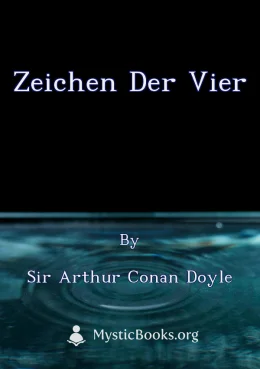
Indian Summer
'Indian Summer' Summary
Theodore Colville is a respected newspaperman in Des Vaches, Indiana. He is the editor of the Democratic-Republican, which he bought from his brother. But after a bad political move his fans criticize him and his pride cannot withstand that. A new opposing newspaper is made and Colville decides to just give up the newspaper business so he sells his newspaper to the new paper. They merge to become the Post Democratic-Republican. Colville decides that he needs to take a long vacation so he travels to Florence.
Colville hasn't been in Florence in almost 20 years. At that time he was a young architect “with an inclination toward the literary side of his profession”.[3] He travelled all over Italy and in Venice he met a young American girl whom he followed to Florence. In Florence Jenny Wheelwright broke Theodore Colville’s heart. He was distraught so when his brother wrote to him to come to Des Vaches, Colville happily accepted the offer for a change in scenery. In Des Vaches he got drawn into the newspaper business, which he happily stayed in for 15 years. In Florence he runs into a person he wasn't eager to ever see again: Mrs. Bowen. Mrs. Bowen, whom he once knew as Lina Ridgely, was best friends with Jenny, the girl who broke Colville’s heart 20 years prior. She is a widow and has a young daughter Effie Bowen. They have a surprisingly pleasant chat and she invites him to a gathering at her home, Palazzo Pinti, that evening. He accepts the invitation.
Colville hasn't done much socializing but at the gathering he falls right into it nicely. When he comes in he notices a beautiful, young, blonde girl that's about twenty and asks Mrs. Bowen to introduce him to her. Her name is Imogene Graham and she is staying with Mrs. Bowen that winter.
At last Mrs. Bowen takes Colville to meet Miss Graham. She is with a young clergyman, Mr. Morton, whom Mrs. Bowen drags away. Miss Graham and Colville have a pleasant chat. After all the guests leave Colville stays behind to sit with Mrs. Bowen, Miss Graham, and young Effie by the fire. Effie, Mrs. Bowen’s young daughter, is enchanted with Colville. Before Colville bids the women good night, Mrs. Bowen tells him he is welcome to drop by anytime.
On Thursday, the day Mrs. Bowen receives guests, Colville comes by the Palazzo Pinti. Unfortunately, Mrs. Bowen has a headache and won't come down to greet the guests. But after all the guests leave and she hears Colville’s voice, she does come down to greet him. They invite Colville to a dance party the next night, and he accepts the invitation. The next night, Colville picks up the women to go to Madame Uccelli’s dance party. Miss Graham is a wonderful dancer and makes Colville dance the Lancers. Unfortunately Colville is awful at Lancers and makes a fool of himself. He doesn't dance for the rest of the night.
The next day he runs into Miss Graham and Effie and stops to socialize with them. Effie is enchanted with Colville and Miss Graham finds him very droll. While they converse, Miss Graham begins to develop a crush on Colville and Colville, though he finds her charming and beautiful, cannot help but notice their age gap. Miss Graham talks to Mrs. Bowen about how pleasant Colville is but Mrs. Bowen reminds her that Colville is twice her age. Colville has nicely integrated into society thanks to the Bowens and often attends parties. He has also become good friends with Rev. Mr. Waters whom he met at the first gathering in the Palazzo Pinti.
This time is the time of the Carnival and people are dressed in all kinds of custom. Mrs. Bowen doesn't approve of the carnival but believes that Miss Graham should experience it. From then on Colville becomes a common guest of the Bowens and every time he comes over he brings the women flowers and a little gift for Effie. He begins to spoil Effie and he enamors the child. Colville invites the women to the veglione and they accept. They go out shopping for dominos and masks and the saleswoman mistakes Colville to be Effie’s father but no one feels the need to correct her. At the veglione, Mrs. Bowen does not allow them to dance with any of the unfamiliar people. They run into Mr. Waters who suggest that they can still dance within the group. Colville and Miss Graham dance the waltz. Mrs. Bowen doesn't seem too happy about this. Colville and Miss Graham have a romantic moment as they dance. When they get back to where they left Mrs. Bowen and Effie, the mother and child are nowhere in sight. Miss Graham doesn't mind being left alone with Colville but Colville seems eager to find Mrs. Bowen and Effie. Someone informs them that the child wasn't feeling well so mother and daughter left. Colville and Miss Graham rush home but Effie seems to be doing okay.
The next day Colville comes to check on Effie. He apologizes to Mrs. Bowen for his actions the previous night; he should not have left Mrs. Bowen. She forgives him but he doesn't feel like she has truly forgiven him. She leaves and Effie comes and sits on Colville’s lap and he tells her Florentine fairy tales. When he leaves Mrs. Bowen talks to Miss Graham and tells her that as her surrogate mother for that winter she feels responsible to advice the girl if she becomes interested in man who unintentionally will make her unhappy. They both know she is talking about Colville. Then Mrs. Bowen takes everything she says to Miss Graham back and rushes out of the room.
Book Details
Authors

William Dean Howells
United States
William Dean Howells was an American realist novelist, literary critic, and playwright, nicknamed "The Dean of American Letters". He was particularly known for his tenure as editor...
Books by William Dean HowellsDownload eBooks
Listen/Download Audiobook
Related books

Home and the World by Rabindranath Tagore
Rabindranath Tagore (1861–1941), also known by the sobriquet Gurudev, was a Bengali poet, Brahmo religionist, visual artist, playwright, novelist, and...

Light That Failed by Rudyard Kipling
The Light That Failed is a tale of Dick Heldar, an artist who struggles with the challenges of life, love, and ambition. The story explores themes of...

Shakuntala by Kalidasa
Shakuntala, a Sanskrit play by Kalidasa, is a classic of Indian literature, known for its poetic language and moving story of love and fate. The play...

Power of the Dog by Rudyard Kipling
The Power of the Dog is a novel set in the American West during the late 19th century. It tells the story of a powerful and ruthless rancher named Cha...

Memoirs of a White Elephant by Judith Gautier
Memoirs of a White Elephant is a unique and captivating tale told from the perspective of Iravata, a revered White Elephant in the kingdom of Siam. Th...

Book of the Thousand Nights and a Night (Arabian Nights) Volume 12 by Anonymous
This twelfth volume of Richard Francis Burton's translation of *One Thousand and One Nights* (Arabian Nights) continues the collection of tales told b...

Rāmāyana, Volume 1: Bālakāndam by Valmiki
The Bālakāṇḍa, or the Book of Childhood, is the first book of the ancient Indian epic, the Rāmāyaṇa. It narrates the early life of Rama, the protagoni...

All Along The River by Mary Elizabeth Braddon
Isola Disney, a young woman living in rural England, finds herself isolated and vulnerable after her husband joins the British Army and departs for In...

Celestial Omnibus, and Other Stories by E. M. Forster
This collection of short stories by E. M. Forster, titled "Celestial Omnibus and Other Stories," showcases the author's unique blend of humanism, soci...

Zeichen der Vier by Sir Arthur Conan Doyle
„Das Zeichen der Vier“ ist der zweite Roman der Sherlock-Holmes-Reihe von Sir Arthur Conan Doyle. Der berühmte Detektiv wird von Mary Morstan gebeten,...
Reviews for Indian Summer
No reviews posted or approved, yet...